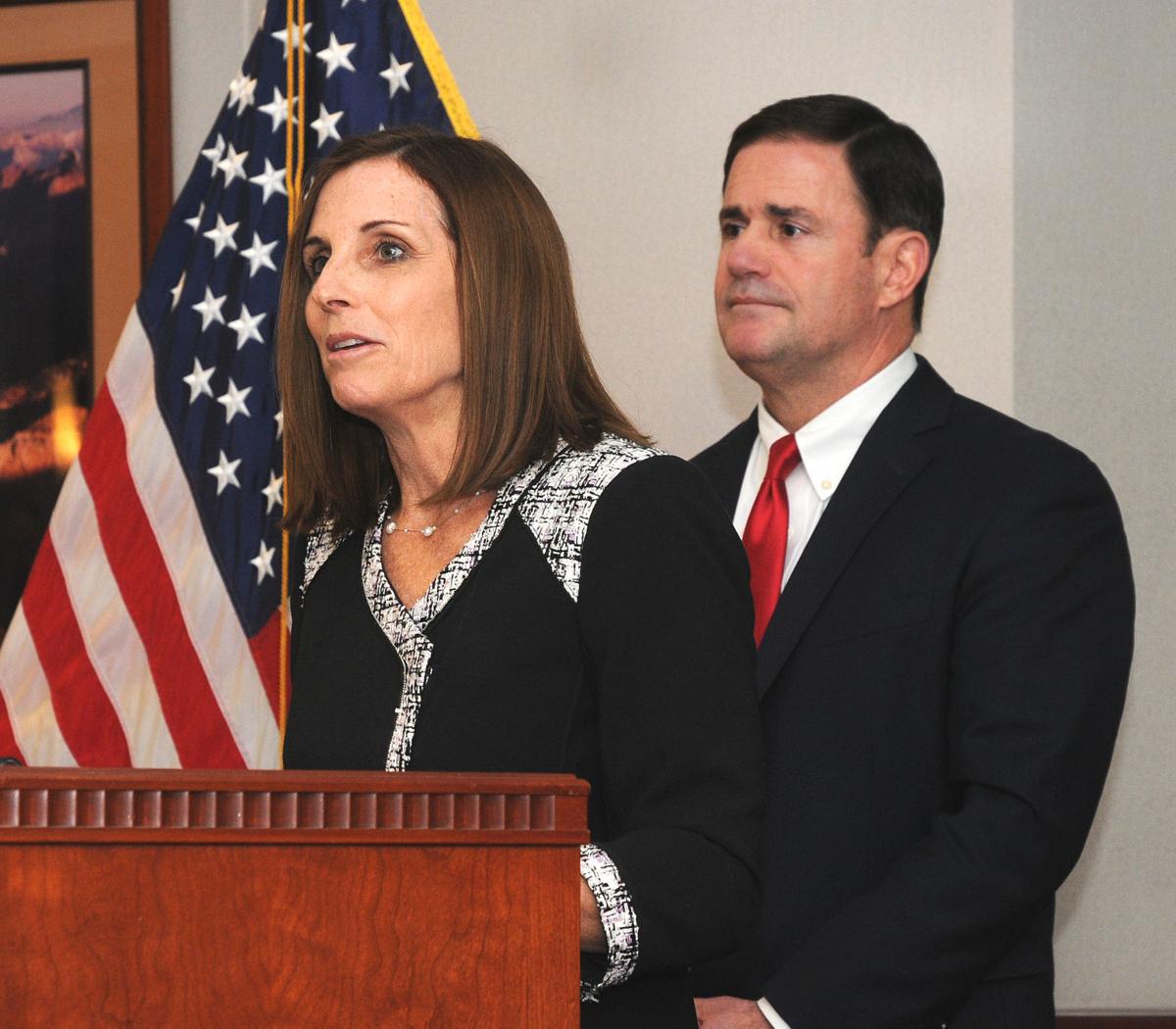PHOENIX — Saying time is running out, the former chairman of the Arizona Libertarian Party wants the 9th Circuit Court of Appeals to order an election — and soon — to decide who fills out the term of John McCain.
In new legal papers, Michael Kielsky notes that a lawsuit to challenge the ability of Gov. Doug Ducey to name a replacement until the 2020 election was filed in November. Now, more than six months later, U.S. District Court Judge Diane Humetewa has failed to act.
Kielsky told Capitol Media Services that, at the very least, every day of delay is a day the voters of Arizona do not get to decide who represents them in Washington. Instead, he said, they are stuck with Martha McSally whom Ducey appointed earlier this year.
But Kielsky, who represents two registered Democrats, one Republican, one Libertarian and one independent, said there’s a more practical reason to try to push the process along.
He said if the case drags on much longer it will end up being within six months of the 2020 election, when McSally will have to put herself before voters if she wants to serve out the final two years of McCain’s six year term. And the law is clear that the governor does have the legal authority to appoint replacements within six months of an election — meaning McSally would get to stay through at least 2020.
“We’re going to get to some point, and that point is approaching more quickly of course, where the whole lawsuit would be moot,” Kielsky said.
Ducey, however, is in no rush to have the case decided — and risk the chance that a court would determine that there has to be an election for the seat McSally occupies before 2020. In fact, the governor’s attorneys already have filed legal briefs with Humetewa not only defending his right to keep McSally in office through 2020 but telling the judge there is no reason to force her to make a decision quickly.
At this point it doesn’t appear that the appellate judges are interested in stepping in.
In an order late Friday, they told Kielsky to either dismiss the appeal himself or show them why they should not toss the case due to lack of jurisdiction.
That order did not go unnoticed by Dominic Draye, one of the governor’s attorneys.
“I think that racing to the 9th Circuit before the district court has even entered a ruling is a bad idea,” he said. And Draye said the Friday afternoon order by the appellate court suggests that the judges agree with that analysis.
Kielsky’s argument is based on the 17th Amendment to the U.S. Constitution that took the power to name U.S. senators away from state lawmakers and gave it directly to voters.
It also says when there are vacancies, the governor “shall issue writs of election to fill such vacancies.” Ducey has done that, setting the primary for Aug. 25, 2020, and the general election for Nov. 3 of that year, to determine who fills out the rest of the term that ends at the end of 2022.
Kielsky, however, contends the Constitution requires the appointment to be temporary “until the people fill the vacancies by election as the Legislature may direct.” And he argues that there should be a special election long before next year, an election that could result in voters choosing someone other than McSally — and other than a Republican — to serve through the end of McCain’s term in 2022.
McSally was Ducey’s second pick after McCain died last August.
He originally tapped former U.S. Sen. Jon Kyl who served through the end of the year — and also provided a crucial vote to confirm Brett Kavanaugh to the U.S. Supreme Court. Kyl then went back into private practice.
That gave Ducey the chance to name McSally who, just months earlier, had lost her bid for the U.S. Senate as she was beaten by Democrat Kyrsten Sinema to fill the seat vacated by the retirement of Republican Jeff Flake.
Brett Johnson, one of the attorneys representing Ducey, has argued that the “inconvenience and expense of a special election outweighs any advantage to be derived from having a more prompt vacancy election.”
In his legal filings, Johnson also told Humetewa a special election would give an edge to “special interest groups and candidates with considerable self-wealth or funding” because of what he said is the cost of having to finance an off-year campaign.
By contrast, he argued, having the vote to fill the balance of the Senate term at a regularly scheduled election “creates a greater opportunity for a stronger pool of candidates to run.”





